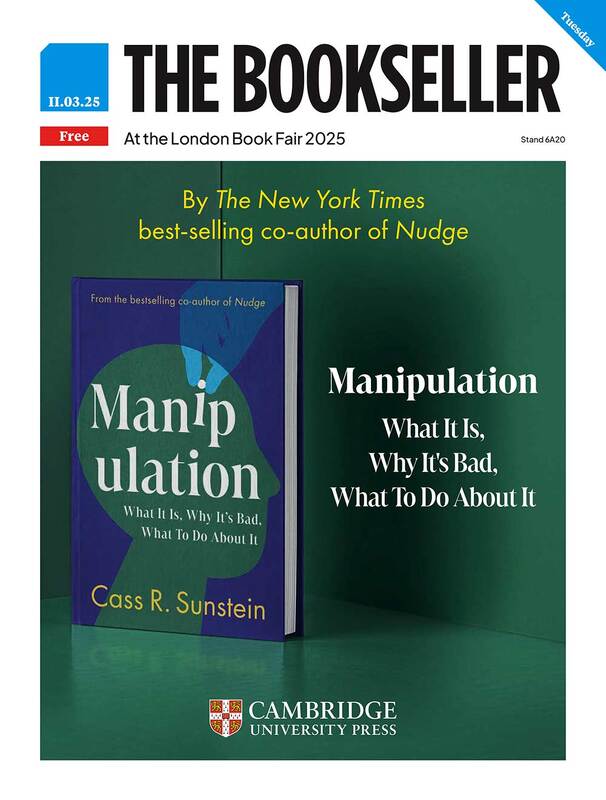You are viewing your 1 free article this month. Login to read more articles.
Pan Mac pays tribute to 'great and controversial' Naipaul
Pan Macmillan has paid tribute to the “great and controversial” author V S Naipaul who died aged 85 on Saturday night (11th August).
Anthony Forbes-Watson, the company m.d., said he had been a fan of Naipaul for almost 40 years, while Paul Baggaley, publisher at Picador, praised his “unique voice”.
“Everyone at Pan Macmillan and at Picador in particular, is proud to publish Vidia Naipaul, a great and controversial writer, and we are very sad to hear the news of his death,” Forbes-Watson said. "I was given A Bend In The River almost 40 years ago, took him on my travels through Africa and have read him ever since. His voice will be much missed.”
Baggaley said: “It is with great sadness that all of us at Picador and Pan Macmillan have learned of the death of the great Nobel laureate Sir Vidia Naipaul. Sir Vidia is one of the towering literary figures of the last 50 years and it has been a privilege for Picador to be the publisher of his writing in the UK and Commonwealth territories, including India, where his writing is of course revered. His writing has received the highest literary accolades and it was particularly pleasing to see him shortlisted recently for the Golden Man Booker."
In May this year Naipaul's tale of displacement across England, America and Africa, In a Free State (Picador), was revealed as one of the “Golden Five” Man Booker Prize-winning books which had “best stood the test of time”. It originally won the Booker Prize in 1971.
Baggaley added: "His work has remained continuously in print since he came to Picador and we are delighted to continue to bring his important work to new readers. His unique voice and qualities will be sorely missed.”
Pan Mac have been his primary publisher in the UK for 18 years, a spokesperson told The Bookseller. The deal was signed in 2000 with the first publication 2001.
Naipual's friend, the newly appointed Daily Mail editor Geordie Greig, described how the author died peacefully after reading a poem by Lord Tennyson. The journalist described on BBC Radio 4's “The World This Weekend” that he had rushed to the author’s deathbed on Saturday after a call from Naipaul’s wife Nadira Naipaul.
“Nadira talked about a poem by Lord Tennyson, “Crossing the Bar”, which had great resonance and meaning to him and I just turned on my phone and found it and we read it. He drifted off and it was peaceful and very, very sad. But what a life, what an achievement, what a legacy."
Meanwhile the Guardian's Editorial suggested that the author should still be read and discussed, despite his ability to generate controversy. "[He] exemplified a very current preoccupation: whether an author’s personality can be separated from his or her reputation as an artist," the Editorial reads. "Naipaul’s legacy will never be entirely straightforward – which does not mean he should not be read, enjoyed, debated and critiqued."
Critic and academic Kenneth Ramchand described the Naipaul's "greatest literary virtue" as "instant readability". "He constructed clear, irreducible sentences, and marshalled them into single-minded paragraphs," Ramchand wrote in the Guardian obituary. "His control of language and the rhetoric of his novels were such that he could persuade you into belief even when his truths were only partly true."
Michael Henderson, writing in the Telegraph, described Naipaul as "the greatest novelist in the English language in the second half of the 20th century". "That is not an objective fact, but those readers who have absorbed his books, and admired his eagle eye, and the quality of his pellucid prose, need little persuasion," Hendrson's tribute reads. "In our flattened literary culture, which appears increasingly to be a branch of showbiz, he was a man apart."
The Financial Times painted a similar picture of how the author's "challenging" nature was important to his legacy. "Few writers have left behind such a vast and complicated legacy — and such a furiously debated one," Nilanjana Roy wrote. "In his last decades, Naipaul was in danger of becoming the sort of caricature he might have put into one of his books — the grand, irascible old man, refusing to adapt to a changed world. But for better or worse, Naipaul influenced, and challenged, two generations of writers."
Fellow author Salman Rushdie paid tribute to Naipaul despite the pair often exchanging critical words about each other. "We disagreed all our lives, about politics, about literature, and I feel as sad as if I just lost a beloved older brother," Rushdie
We disagreed all our lives, about politics, about literature, and I feel as sad as if I just lost a beloved older brother. RIP Vidia. #VSNaipaul
— Salman Rushdie (@SalmanRushdie) August 12, 2018
Naipaul was born in rural Trinidad on 17th August 1932 and went to Oxford University in 1950. His first three books The Mystic Masseur, The Suffrage of Elvira and Miguel Street are set in the Caribbean and were published between 1957 and 1959. He also wrote book reviews and radio programmes to support himself before A House for Mr Biswas was published in 1961, the book for which he is best known (all books published by Pan Mac). A House for Mr Biswas "is so full of comedy and pathos, uncanny wisdom and painful compassion, containing a comprehension both of human motive and of a society’s dynamic that might take most writers a lifetime to achieve, [and yet] was written by a man in his mid- to late twenties," James Woods wrote in the New Yorker.
In 2001, Naipaul received the Nobel Prize for Literature but often attracted attention for his controversial views, such as in 2011 when he described women's writing is "unequal" to his, at the Hay Festival.
Last year his book A Bend in the River (Picador) was chosen as one of Barack Obama’s favourite reads during the former US president’s time in the White House.
The author sold just under 137,000 units for £1.2m since Nielsen BookScan records began.



















